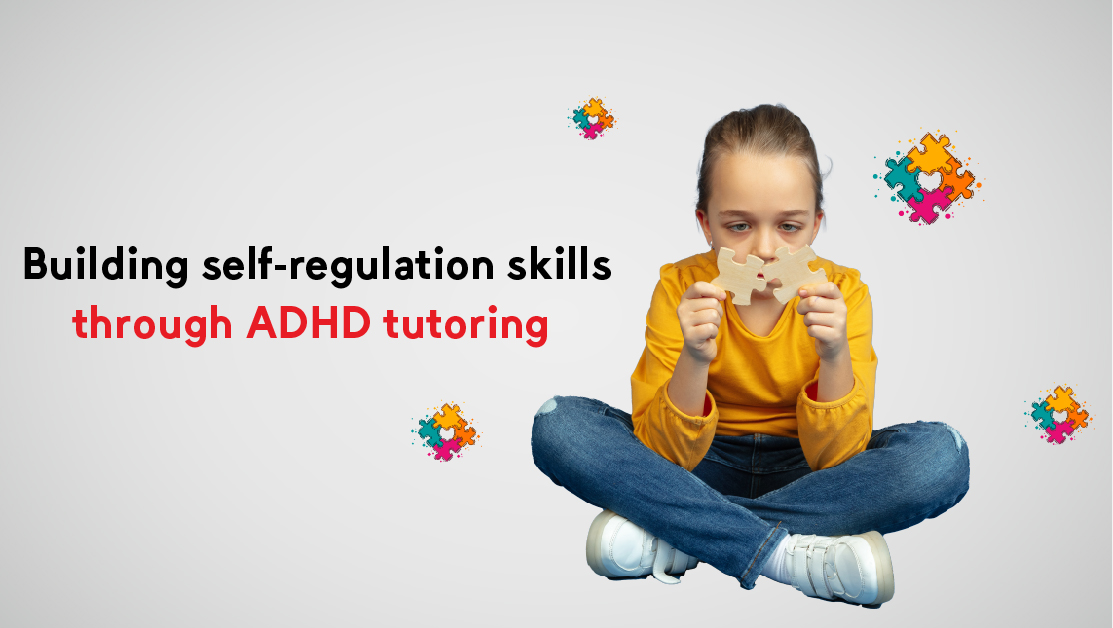
The skill of self-regulation is one of the primary factors in the success of individuals in their personal and professional lives. However, many people, especially those with attention deficit hyperactivity disorder (ADHD), have difficulty developing this skill. Fortunately, there are many Among the lessons dedicated to improving the skill of self-regulation in people with ADHD. In this article, we will talk about the benefits of ADHD tutoring in improving the skill of self-regulation, teaching hyperactive children Methods to improve the lives of individuals.
Attention Deficit Hyperactivity Disorder (ADHD)
Attention Deficit Hyperactivity Disorder (ADHD) is a psychological disease that affects the development of children in childhood and youth. Children with ADHD face difficulty in focusing and paying attention, and in controlling movement, which affects their educational and behavioral performance and exposes them to emotional disability. Diagnosing and treating ADHD disorders requires special attention to the aspects of mental health and education. Family and educational support is an important factor in helping children with ADHD tutoring and adapt to different environments.
The student’s environment greatly affects his learning and concentration during the study. An environment conducive to learning can help students engage in study and achieve their best performance, including:
- Adjust lighting and sound in the classroom.
- Organizing materials in an orderly and well manner.
- The use of colors, pictures and graphics that create a more interesting atmosphere and encourage students to focus on studying.
- Waste, clutter and visual clutter can seek to reduce the energy to focus on studying.
- Also, students can practice by getting together at a set time and using short breaks in their day schedule to keep them focused.
Dealing with hyperactivity people
Appropriate pedagogical teaching methods for ADHD children aim to help students with ADHD improve their educational performance and properly regulate their behavior through teaching hyperactive children Methods:
- First, organizing the student’s physical environment, reducing distractions, removing dangerous tools, and giving games at the time and place designated for them only.
- Secondly, building a classroom and home routine and putting together illustrated instructions that help the child understand the required task in a visual way.
- Third, the teacher’s interest in developing an educational plan that meets the child’s needs by teaching behaviors that reduce the severity of this disorder and learning academic skills.
- Fourth, following treatment methods and appropriate medication, which can help improve the child’s behavior and improve his educational performance.
- Fifth, parents must understand the nature of their children’s disorders and the need to monitor and help them overcome their problems.
In the end, it must be recalled that Dealing with hyperactivity people requires continuous patience and the need to work in cooperation with specialized parents and therapists to make the educational methods achieve the desired success.
Teaching hyperactive children Methods
Children with ADHD face great challenges in learning, so teaching them is very important. Methods of ADHD tutoring that help improve their learning:
- Presenting lessons in a simple and clear manner, and using practical examples and pictures to explain concepts.
- It is recommended to select short periods for each lesson and teach them gradually, and use activities that encourage thinking, focus, attention and imagination.
- Provide a calm and distraction-free environment while learning.
- Focus on providing repeated instructions so that children can understand them well.
- Provide the necessary support for hyperactive children and give them enough space to develop their unique skills and abilities.
Emotional regulation
People with attention deficit hyperactivity disorder (ADHD) have difficulty controlling their impulses. But they can learn emotional regulation skills to deal with this problem. These skills include:
- Identify and name their feelings.
- Understand the influences it may have on their behavior.
- Reduce the duration and intensity of these feelings in the future by using deep breathing and meditation techniques.
Dealing with hyperactivity people to improve the handling of negative emotions in a healthy way, to prolong the period of patience, and to enhance wisdom in decision-making. This type of emotion regulation is an important part of self-regulation and can be learned through some ADHD tutoring.
Self-regulation
Self-regulation is one of the most important factors affecting a person’s life and professional success, and it is considered one of the elements of emotional intelligence necessary to achieve goals and respond to thoughts and situations. Behavioral self-regulation relates to a person’s difficulty in responding to unexpected situations and events, and this aspect can be improved by setting long-term goals and applying them in daily life, not responding to negative criticisms and learning from mistakes, while emotional self-regulation is related to managing and controlling feelings of anxiety and stress, and can Improving this aspect by identifying the sources of stress and anxiety and addressing them properly. Improving self-regulation skills also helps reduce mental health problems, and positively affects an individual’s personal and professional life.
Elmadrasah.com and ADHD tutoring
ADHD tutoring is among the important ways to teach children with ADHD that children with ADHD should learn. These lessons, provided by Elmadrasah.com, aim to:
- Teach them the skills needed to improve their ability to concentrate and learn effectively.
- Training focuses on motivating the child and encouraging him to work independently and without supervision.
- Teach him how to organize time and deal with different tasks.
- Develop their social skills and learn to cooperate with others.
ADHD tutoring and teaching hyperactive children Methods vary between screaming, breathing and sports exercises, and participation in reading, writing, and creative activities, all of which aim to motivate children with ADHD and improve their different learning abilities.















